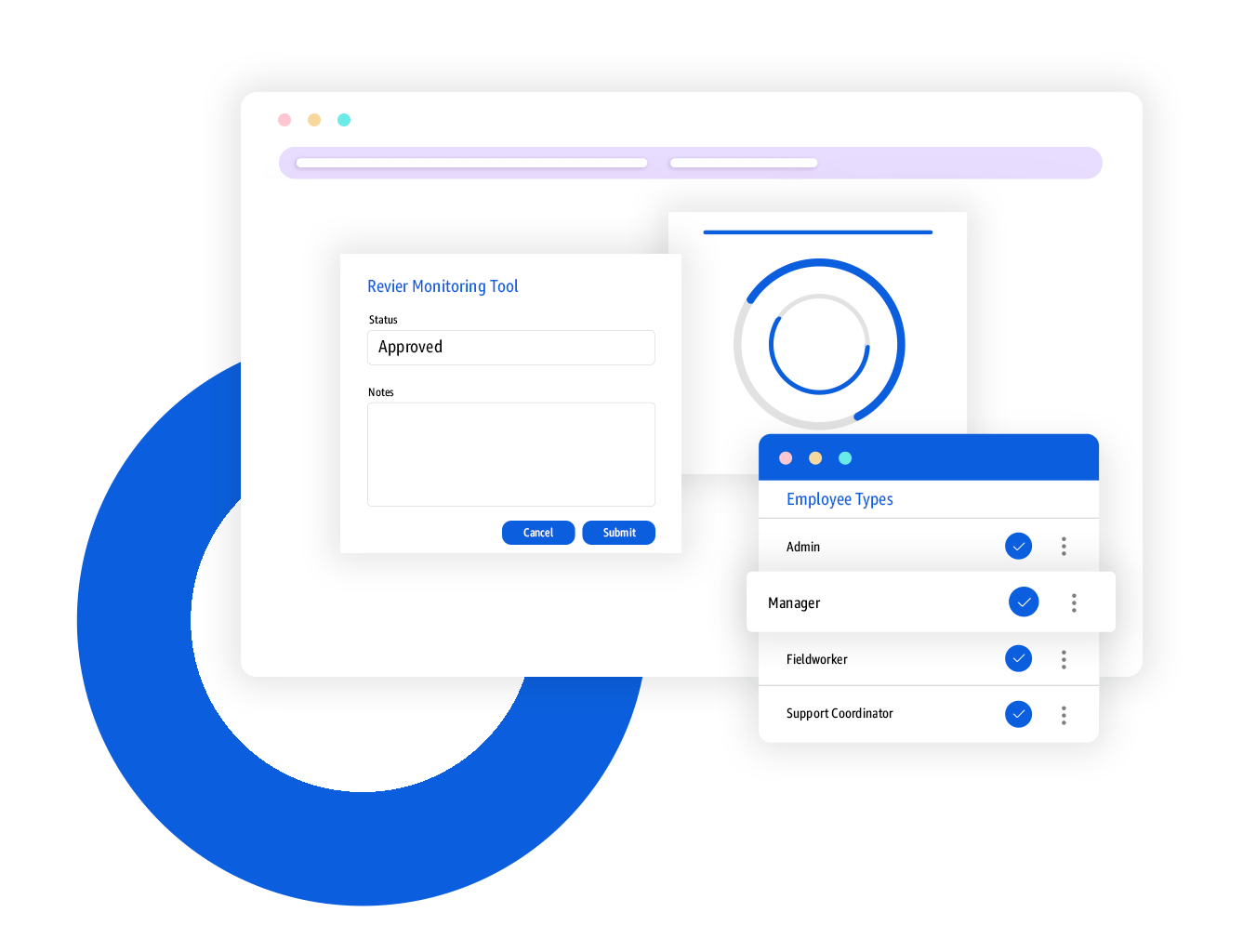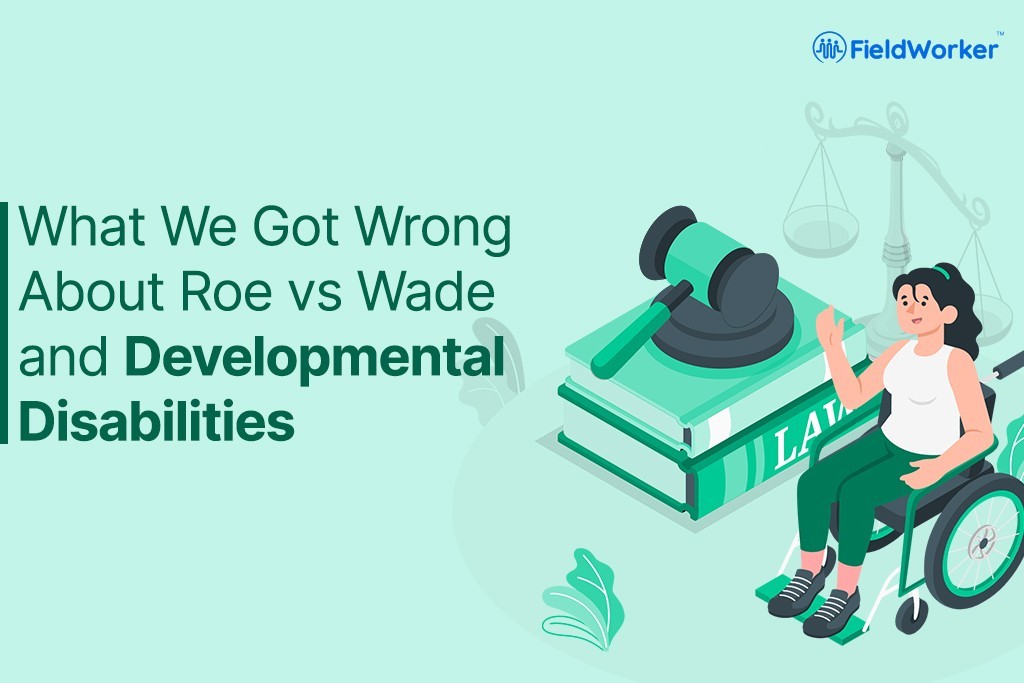The 1973 decision of the landmark Roe vs. Wade case, which had made abortion legal nationally has been reversed by the Supreme Court. Due to this reversal, people with marginalized identities will be particularly affected more than everyone else for numerous reasons, including disparities in access to health care, sexual assault, and the historic loss of body autonomy.
The Dobbs v. Jackson Women’s Health Organization case, which the high court decided in the last week of June 2022, reversed Roe v. Wade, the almost 50-year-old case defending the right to abortion in the United States. In writing for the majority, Justice Samuel Alito referred to the Roe decision as “egregiously incorrect.” He insisted that it “must be reversed.”
As stated in The Progressive Magazine, one in three adults with a developmental disability, or 32.9 percent, are thought to have experienced sexual abuse. The severity of the disability further makes it worse. To gain a better perspective, according to the Bureau of Justice Statistics report, disabled people were nearly three times as likely to experience sexual assault than non-disabled people. This inevitably puts IDD (Intellectual and Developmental Disabilities) women at an even higher risk of poor pregnancy outcomes.
According to the NSVRC, in 2013, a shocking 68.1% of rapes and sexual assaults committed were against people with intellectual developmental disabilities and victims with multiple forms of disabilities. Additionally, 69% of deaf women who participated in the study said they had been victims of sexual assault at least once in their lifetime. An intimate partner (39.6%) or a close and known person was the most common offender of sexual assault against women with disabilities (25.1 percent).
Impact on people with Intellectual Developmental Disabilities
Inaccessibility to proper care and treatment for pregnant women with IDD is an additional problem for which they’ll have to find ways to navigate and solve. Not to mention, the daily challenges they already experience with basic respect and autonomy over their medical choices.
- Denied care:
Take for instance, for mothers who already have a child at home, a second or another child would practically not be possible. Robin Wilson-Beattie had experienced severe complications with her first child but she didn’t want to take that chance for the second time. So when she went to seek an abortion for her second pregnancy, Robin was denied care due to her paralysis. Let alone providing appropriate care, the medical staff were scared to do anything with her.
- Body autonomy:
In another case, Ives-Rublee wasn’t sure if she’ll be able to carry her baby to term due to her short stature, low lung capacity, and brittle bone disease, called osteogenesis imperfecta. As a person who would like to focus on her career and make independent decisions about her life, pregnant women with IDD like Ives-Rublee would prefer to have access to legal abortion clinics that can empower them.
There are several instances during which a lot of women with IDD don’t feel that the body belongs to them. When they arrive at a clinic, judgemental questions by the healthcare staff members often puts them in a tough situation. It goes without saying that this discourages them from even trying to access basic health care let alone flying to a different state to access abortion clinics. The plight is even worse for disabled women of color.
- Disabled women of color:
In the case of Giwa Onaiwu, they were treated horribly due to their race and misconceptions about their disabilities. Giwa has autism and ADHD, when they asked for more medication to help with the pain during a post-abortion procedure, the medical staff assumed they were asking for drugs for recreational purposes. In retrospect, Giwa shared that they could have died given the type of negligent treatment they received from the clinic.
- Out-of-state abortion care:
Notably, the aforementioned incident occurred before the Roe case so one can imagine the consequences of the reversal in the Roe vs Wade ruling. Without legislative protection in place, disabled women and disabled women of color have no choice but to seek alternative solutions such as out-of-state abortion clinics. More organizations will be working on creating mutual aid programs to help pay for out-of-state abortion assistance.
- Health insurance:
Let’s not forget – health insurance. Disabled women belong to a lower-income class in the US. Being covered by health insurance is a privilege that not many of them experience. According to the Center for American Progress, disabled women have a poverty rate of 22.9%, compared with 17.9% for men with disabilities and 11.4% for non-disabled women.
As we all know, pregnancy is generally not an easy phase in a woman’s life. To top it off, the US has a high maternal mortality rate compared to other developed nations. As a result of the reversal of the Roe vs. Wade case, there’s likely going to be a steep increase in maternal mortality cases, putting mothers with disabilities at an even higher risk.
In fact, according to a study from the National Institutes of Health published in 2021, pregnant women with disabilities are substantially more likely than other pregnant women to experience severe pregnancy-and birth-related problems, including mortality.
Important Statistics
According to the NIH, women with disabilities have the following criticalities:
– More likelihood of maternal mortality;
– 48% increased risk of mild preeclampsia and more than twice the risk of severe; preeclampsia, a potentially fatal hypertension condition of pregnancy;
– 27% increased risk of bleeding;
– 25% increased chance of gestational diabetes;
– 16% increased chance of early membrane rupture;
– 52% increased chance of placenta previa;
– Nearly 3 times as likely to contract an infection;
– 4 times as likely to experience cardiovascular events;
– Other delivery-related issues include using forceps, a vacuum, or other tools to extract the fetus; or undergoing a cesarean section;
The more significant issue of how sexuality among people with intellectual or developmental disabilities (IDD) is frequently disregarded relates to the legal elimination of reproductive healthcare alternatives. As a result, this group frequently lacks resources for sexual education.
How can the situation be improved for people with Intellectual Developmental Disabilities?
The likelihood that a disabled person may need access to abortion is very high.
Moreover, there are several reasons which affirm this.
-Sex education is essential for promoting consent-based intimate relationships and preventing unintended pregnancy and abuse. It also guides decisions regarding pregnancy, contraception, and the implications of those decisions — all realities affected by the overturning of Roe v. Wade.
-A person with an intellectual limitation may be better able to comprehend sexuality-related issues if visual aids like pictures or colors are used. Regardless of the method, repetition is crucial to helping the knowledge stick. For parents and teachers, there are various resource guides to look for.
-People with developmental disabilities need access to information about their options as sexually active adults and opportunities to address the effects of sexual abuse.
The overruling needs to be reconsidered all the more for people with Development Disabilities.
Conclusion
Due to the high rate of mistreatment, including sexual assault, experienced by individuals who have developmental disabilities, the decision to reverse Roe v. Wade puts their reproductive health in great danger. The decision has created a possibly hazardous healthcare gap for these people.
States’ differing stances against abortion might be problematic for women with and without developmental disabilities. Some states still permit unrestricted access to abortion. In contrast, anti-abortion laws in several other states do not create an exception for rape victims, including young child rape victims. In addition, some jurisdictions do offer an exception for serious medical issues. As many state legislators attempt to resurrect pre-Roe bans or, on the other hand, update legislation to allow access, rules governing abortion are likely to change.
Healthcare equality concerns access to abortion and reproductive health, which must be addressed as part of trauma-informed care. Many people with disabilities have health issues related to their impairments that call for access to abortion care.
Justice that takes a more holistic approach to access reproductive and all health services are definitely in need. The discrimination in health care against persons with disabilities is overt. It affects people’s reproductive choices on all fronts, including whether to become pregnant or end a pregnancy.

